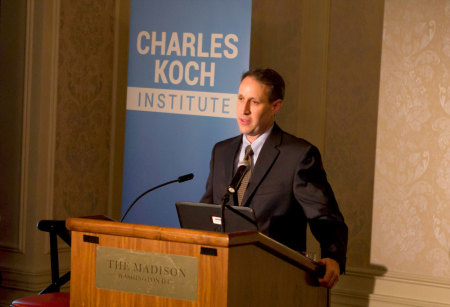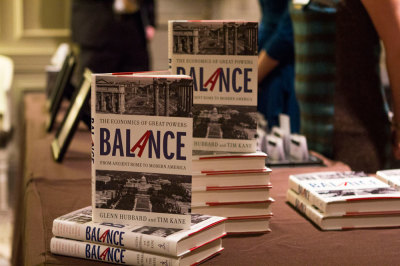Economic Historian: Jesus, Bible Argue for Capitalistic System; Says Welfare State Is 'Spider's Web, Not Safety Net'


WASHINGTON – A prominent economist argued that the success of the great empires of the past was tied to their support for religious freedom and economic systems similar to Jesus' teachings on charity and hard work.
"Religious freedom is very important for the power and stability of the greater society," Tim Kane, chief economist at the Hudson Institute and co-author of Balance: The Economics of Great Powers from Ancient Rome to Modern America, told The Christian Post in an interview on Friday. He urged Christians to stand up for their rights and to defend America's heritage – from Jesus Christ to Abraham Lincoln.
"There has developed in America an intolerance for Christians and a mocking of people of faith," Kane argued. He also attacked the "negative light" in which many teachers and entertainers allegedly put America's history and heritage.
"It's good for Christians to assert their rights and their freedoms," the economist declared. "Being active in politics is good, but I think especially of issues in public education, the values we teach our children."
In the subject of history, Kane emphasized the value of religious freedom to the economic and political stability of "great powers." One of the great historical champions of religious tolerance was the Ottoman Empire, he argued. When Ferdinand and Isabella united Spain and famously sent Columbus on his journey in 1942, they also expelled the Jews who fled to the Ottoman Empire and thrived.
In part due to this religious toleration, the economist argued, the Ottoman Empire proved the greatest of the Middle Eastern empires, lasting seven centuries. Later in its history, however, it became less tolerant, and Kane pointed to this shift as the key to the empire's slow decline.
Similarly, the Roman Empire grew and shrank along with religious freedom. "Rome was strongest when it was most tolerant of Christians," Kane said, emphasizing the Emperor Trajan in the early second century. In the book, he wrote that "the beginning of the end of Rome is easy to pinpoint," at Aug. 9, A.D. 117 – the day Trajan died.
Kane aimed to dispel the argument that Christianity brought down the empire of Julius Caesar. "I just don't think that story has any substance to it," he said. Rather, the economist pointed to "real wisdom to return to the teachings of the Bible."
"A lot of what Christ represented was respect for everyone – respect for the poor, a sense of equality, which we can understand in a more sophisticated way as equality of opportunity," Kane argued. He pointed to two of Jesus' main points – caring for the poor and working diligently.
Far from supporting the communistic system, which some read into Acts 2 and 4, Kane claimed that the Bible – especially the words of Christ – argues for a more capitalistic system. "I don't think Christ would have said 'let's pay people not to work,' instead he would have said, 'let's give people opportunities to work,'" the economist explained.
He noted that following the political polarization and upheaval that follow an utter rejection of religious freedom, the key cause for the collapse of empires is economic imbalance, when a country starts promising more than it can deliver or exporting more than it imports. Various economic systems render a country more or less prone to this weakness.
By teaching people not to work but to expect handouts anyway, "the welfare state becomes a spider's web more than a safety net," he added.
"Abraham Lincoln and Jesus Christ were essentially fighting against slavery. Not merely a slavery of one man to another, but a slavery to the state – a bondage of welfare, where the government takes from citizens who work to pay those who are idle. True charity, as Jesus taught, gives a poor people a job – a purpose."





















